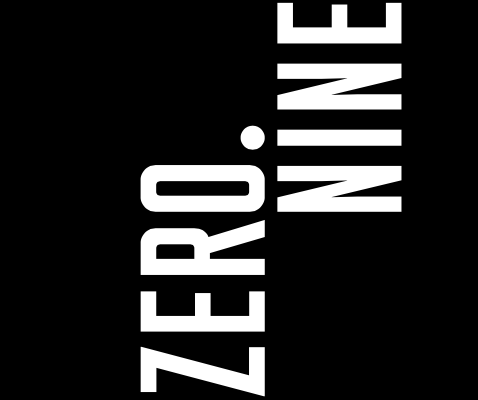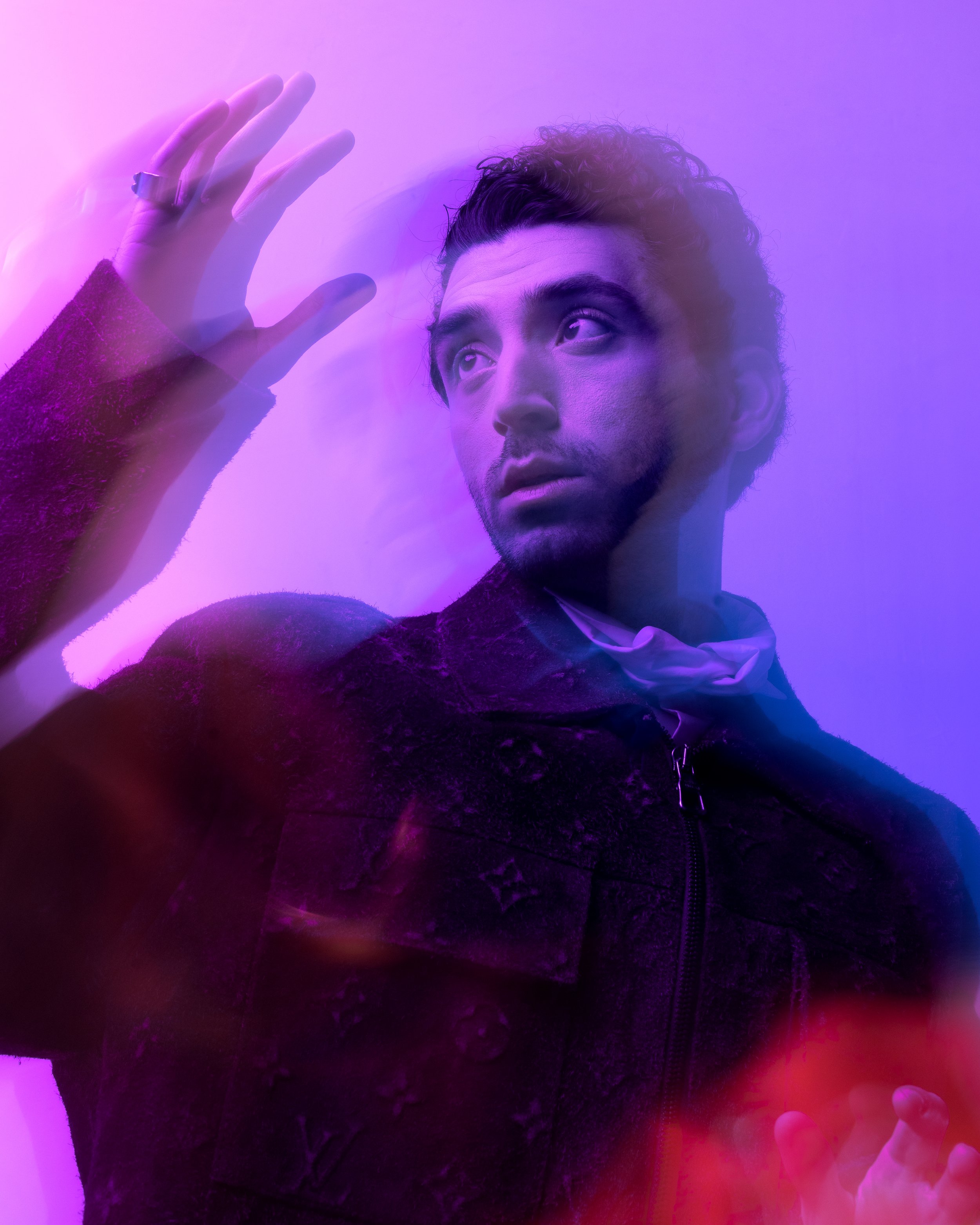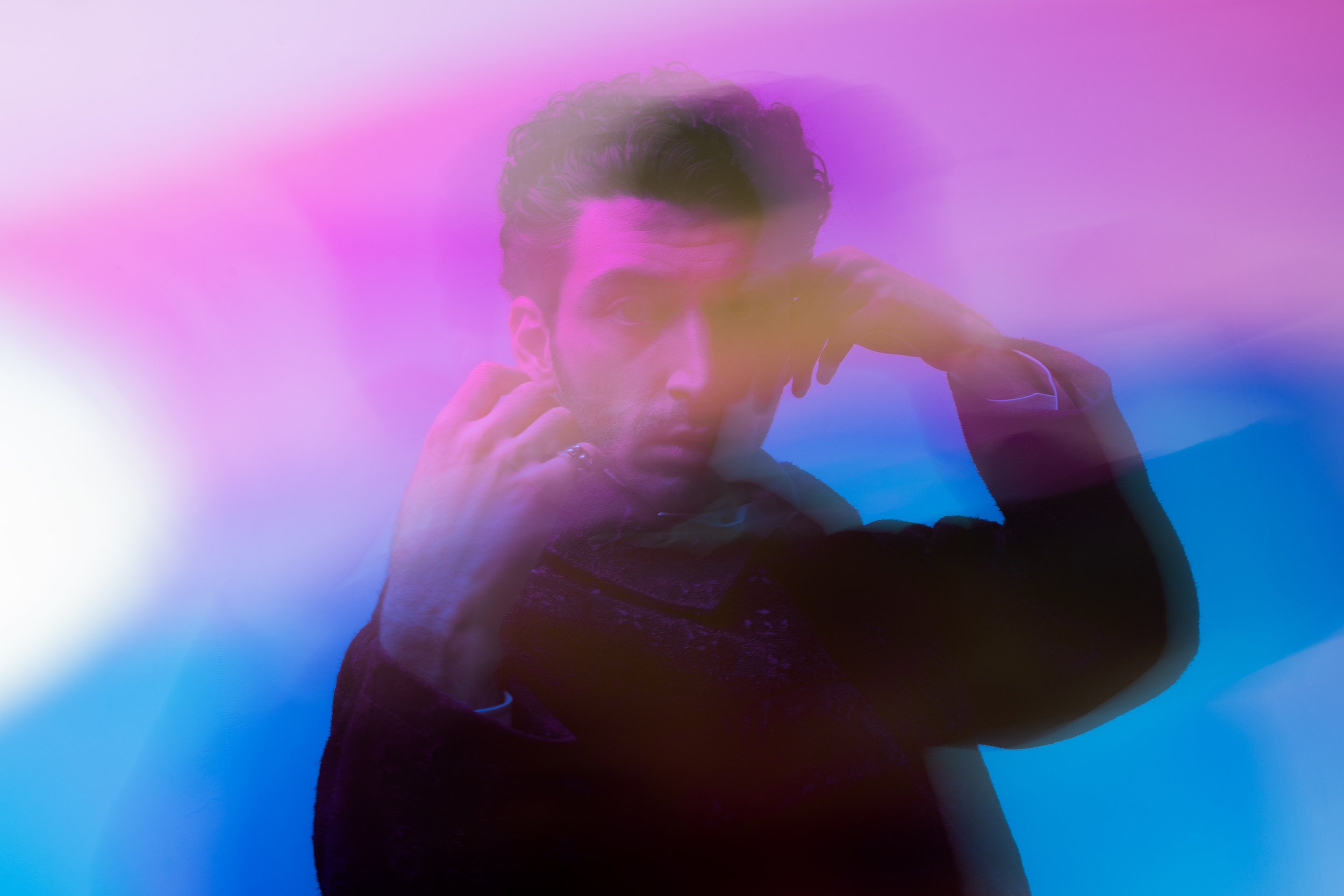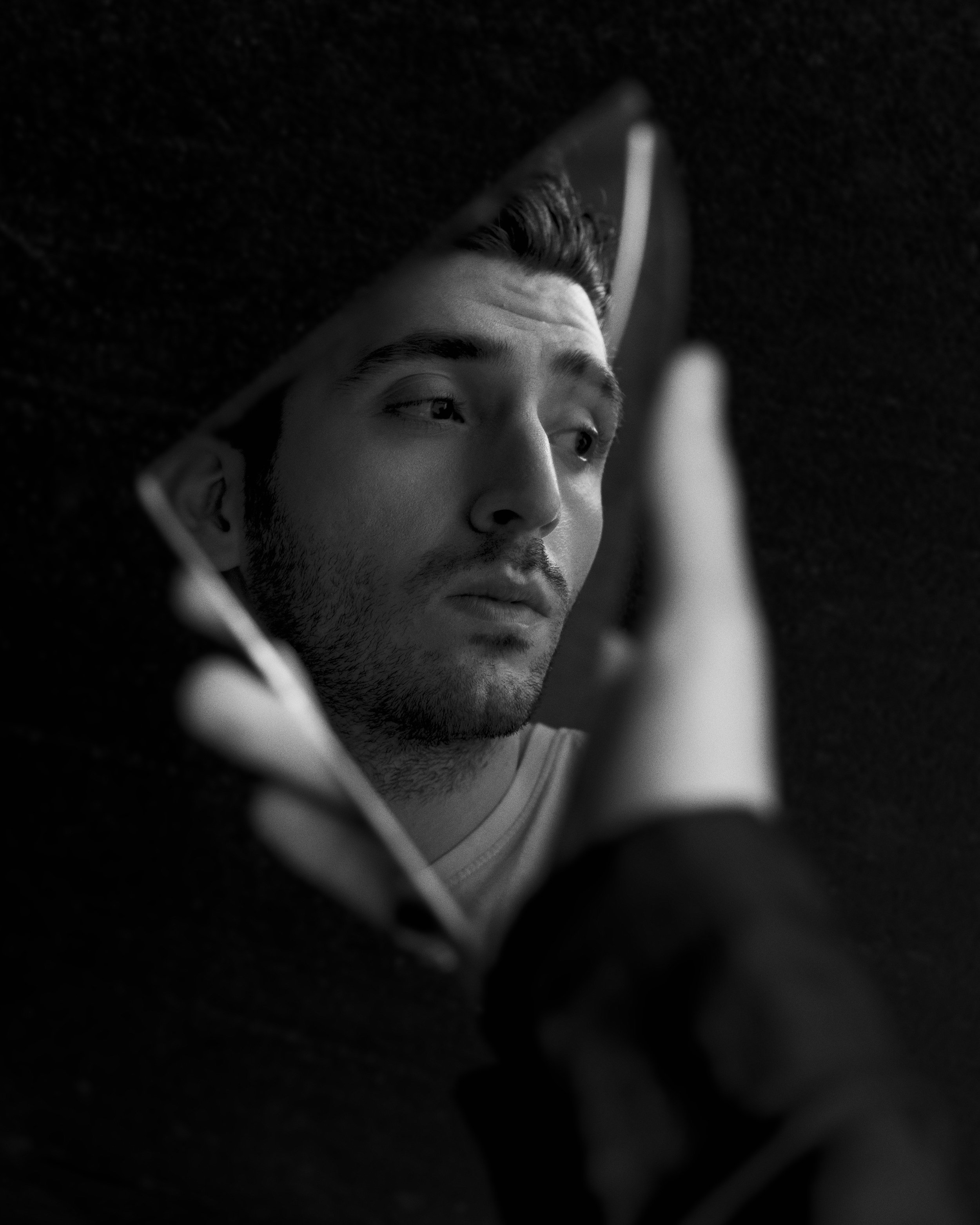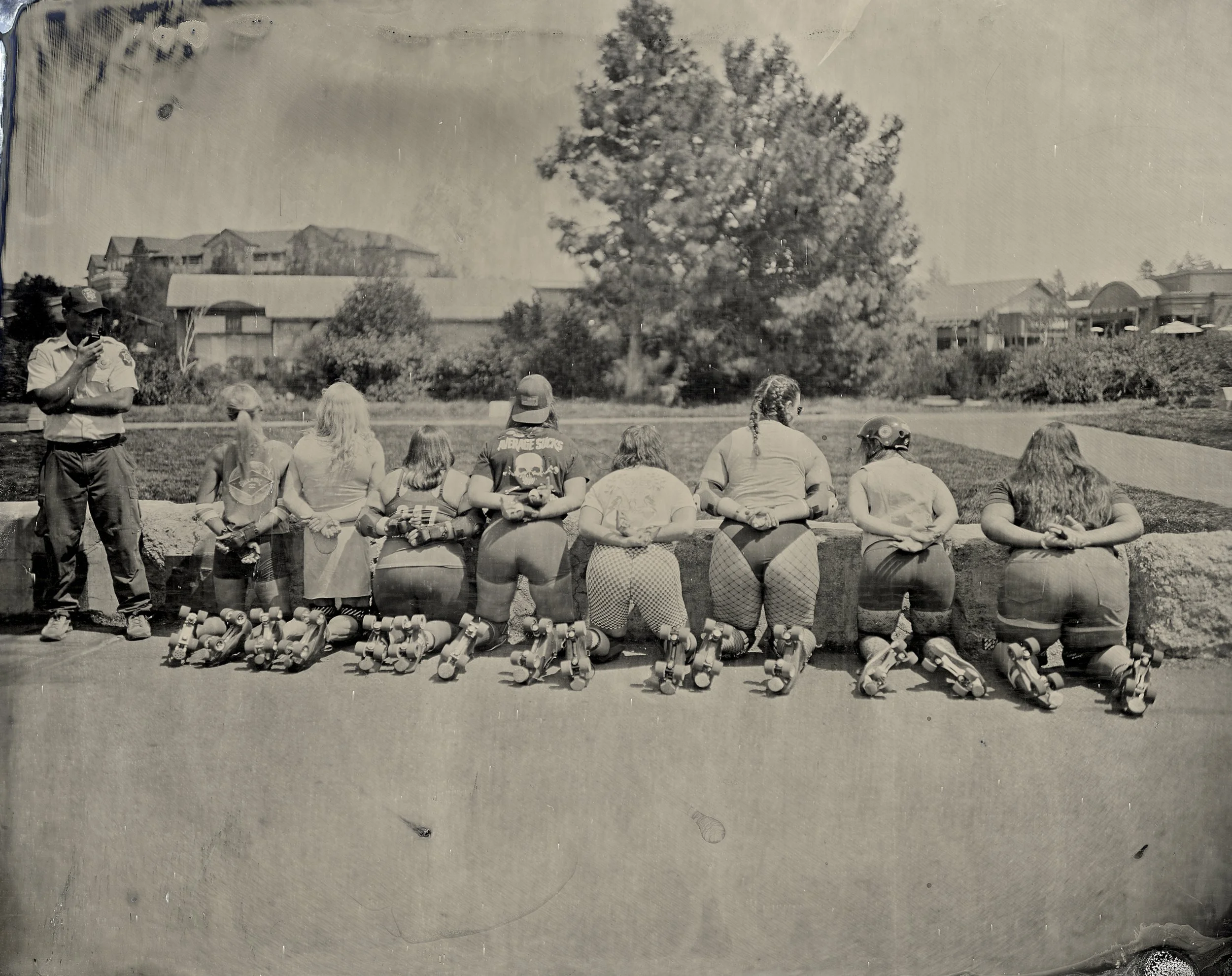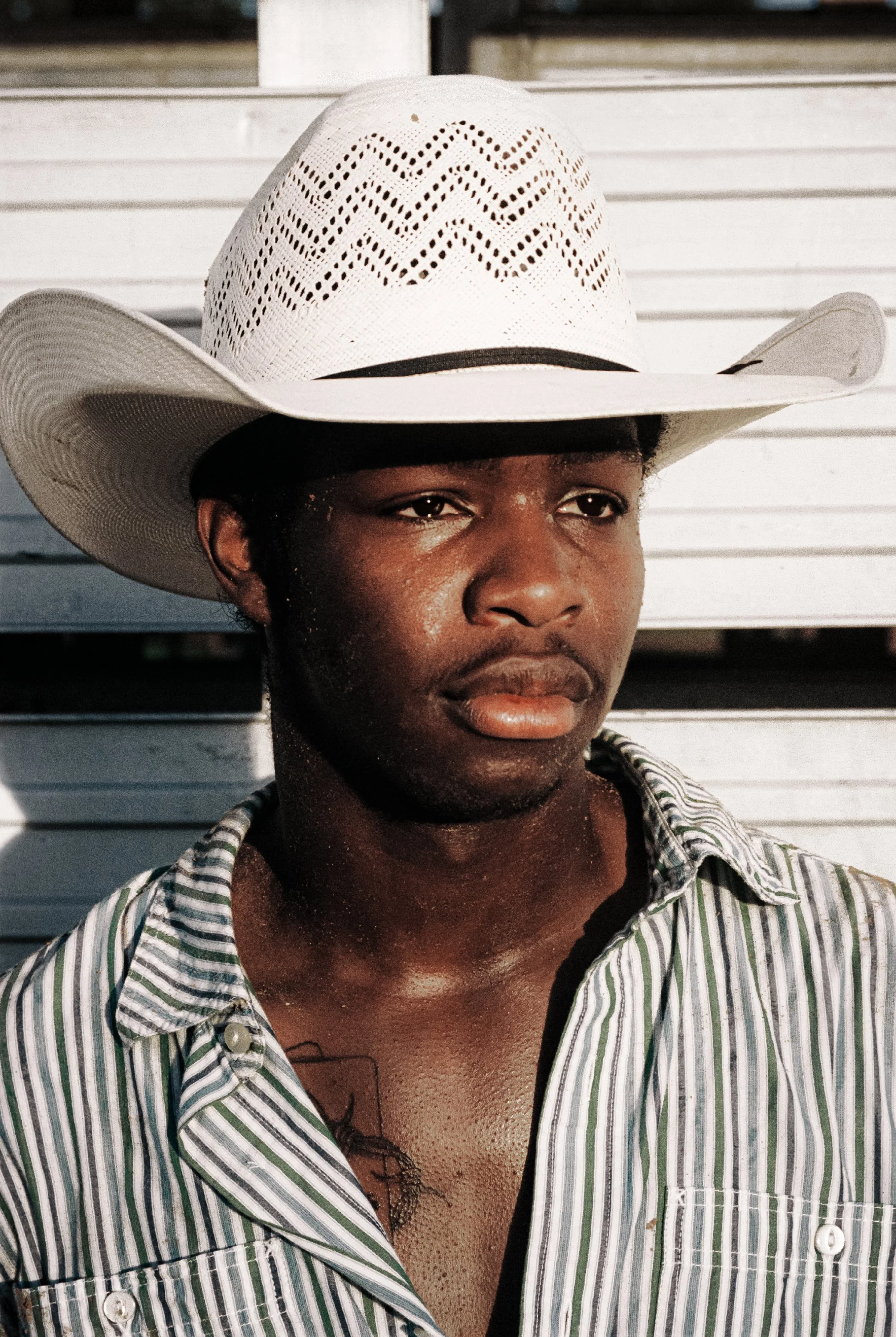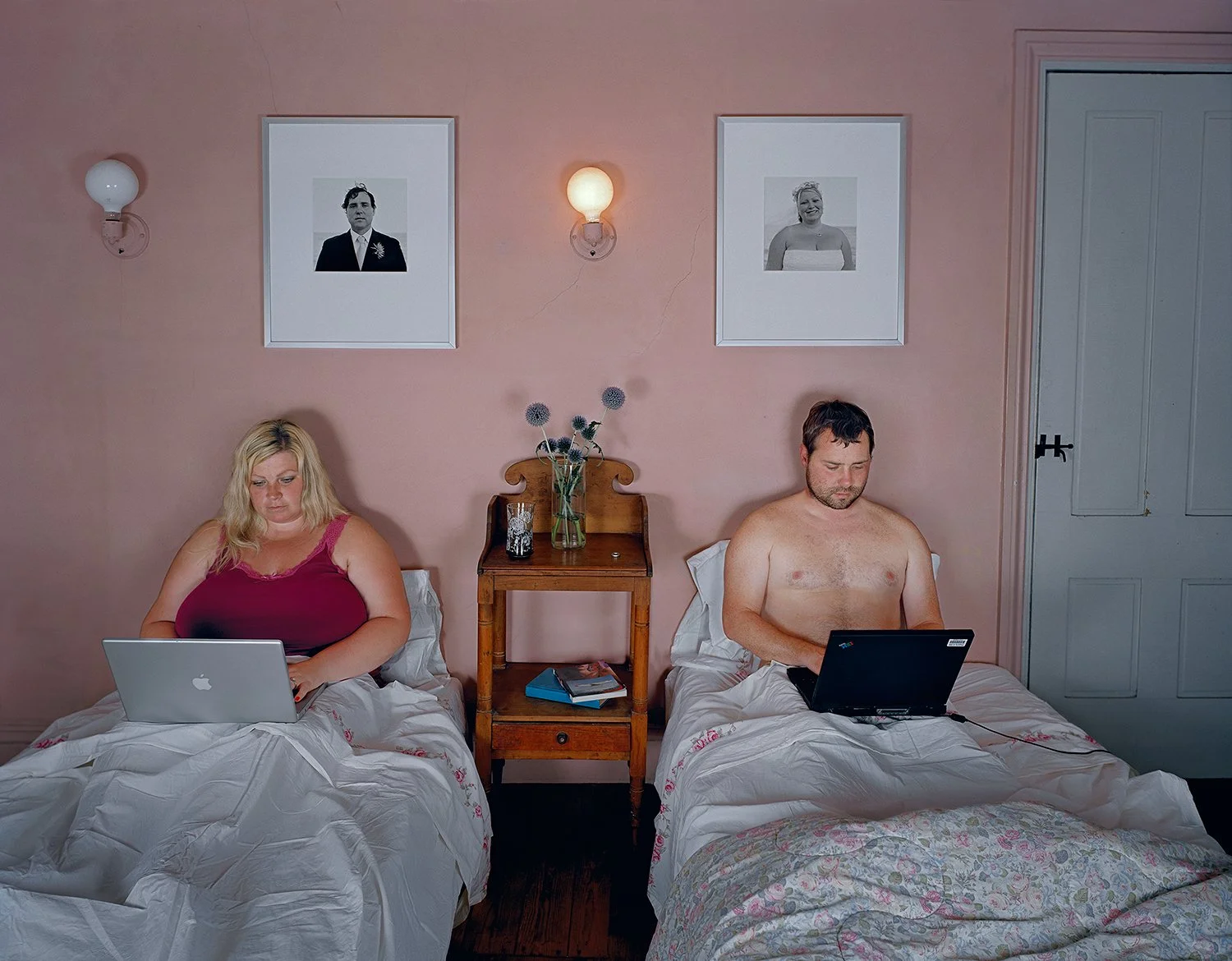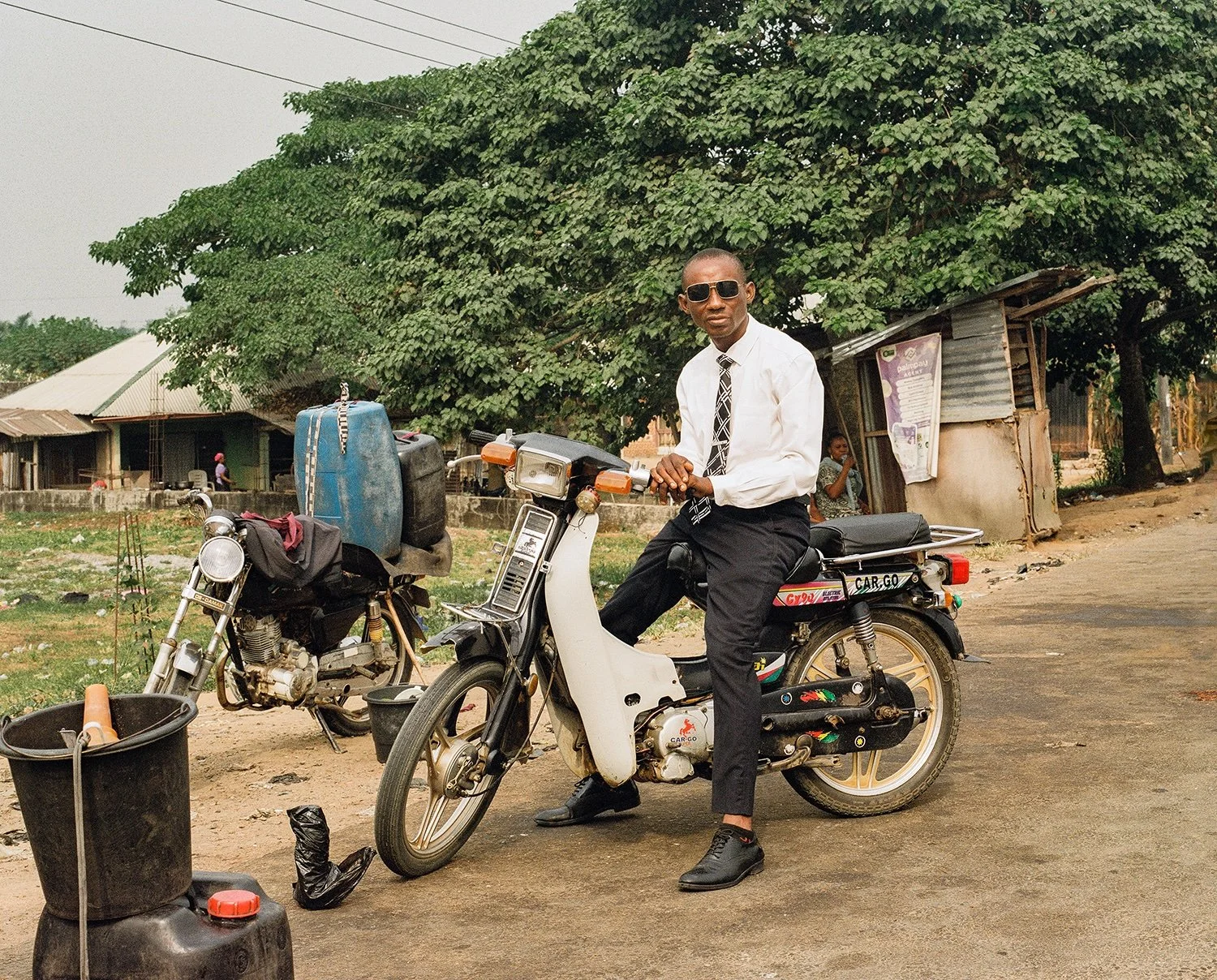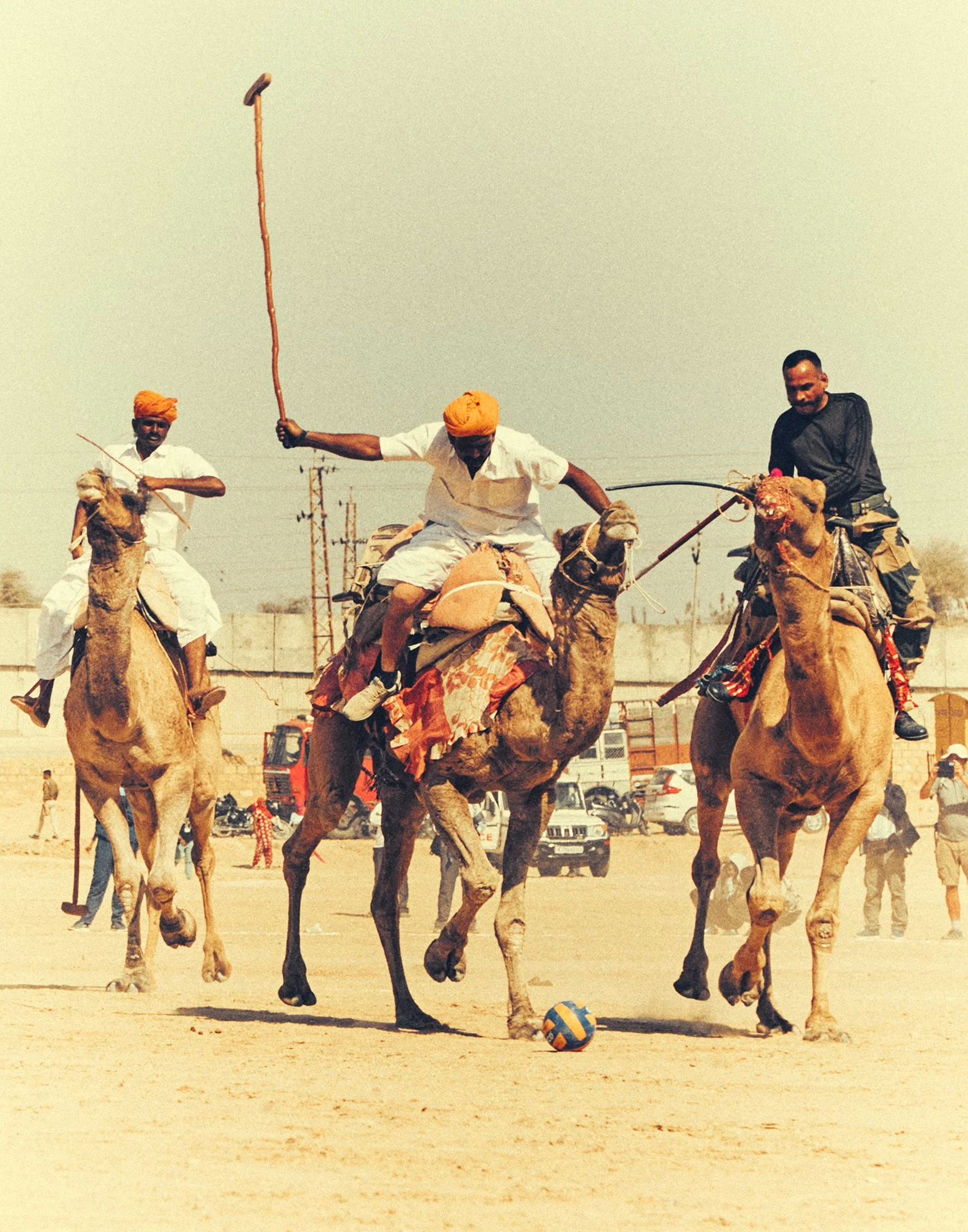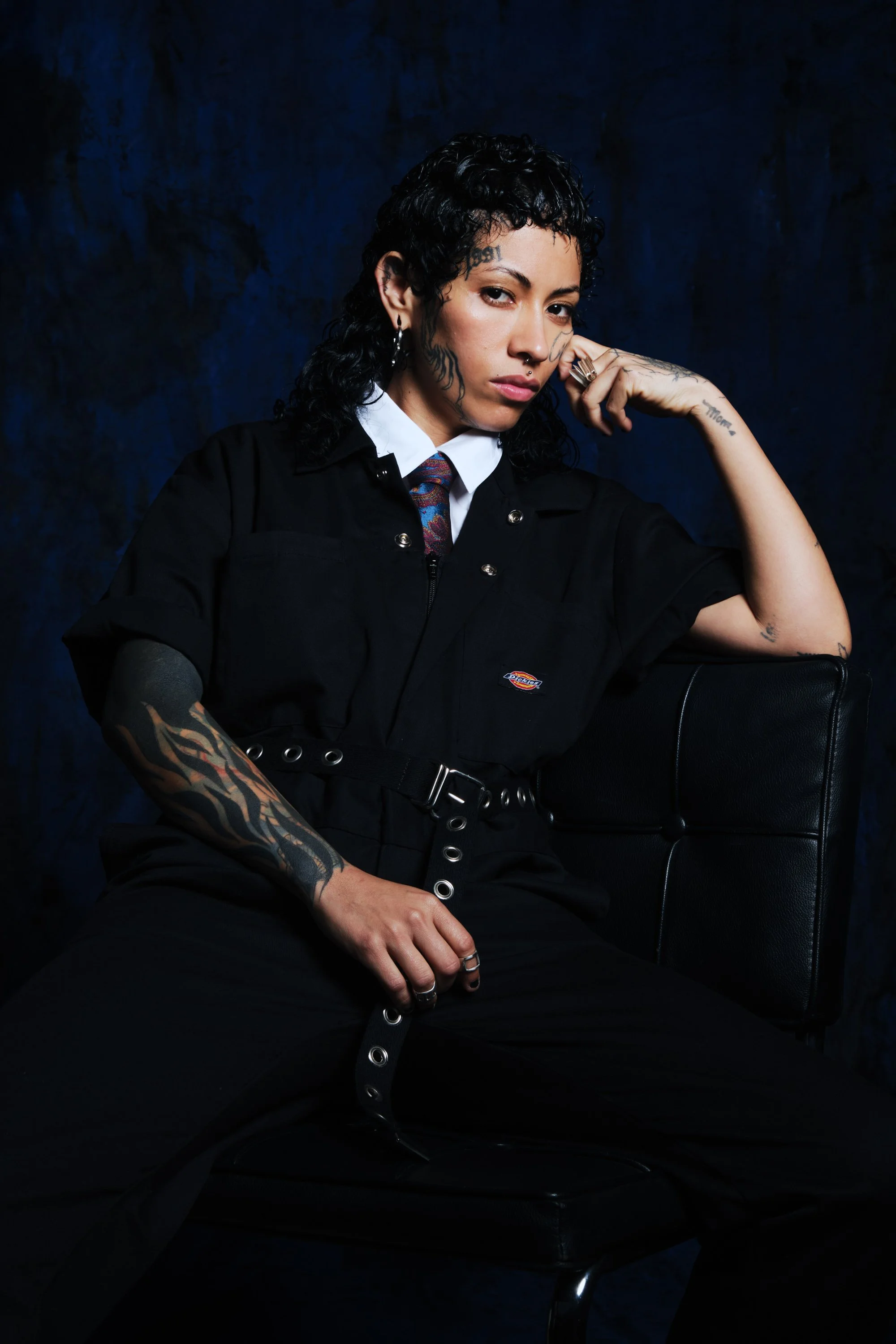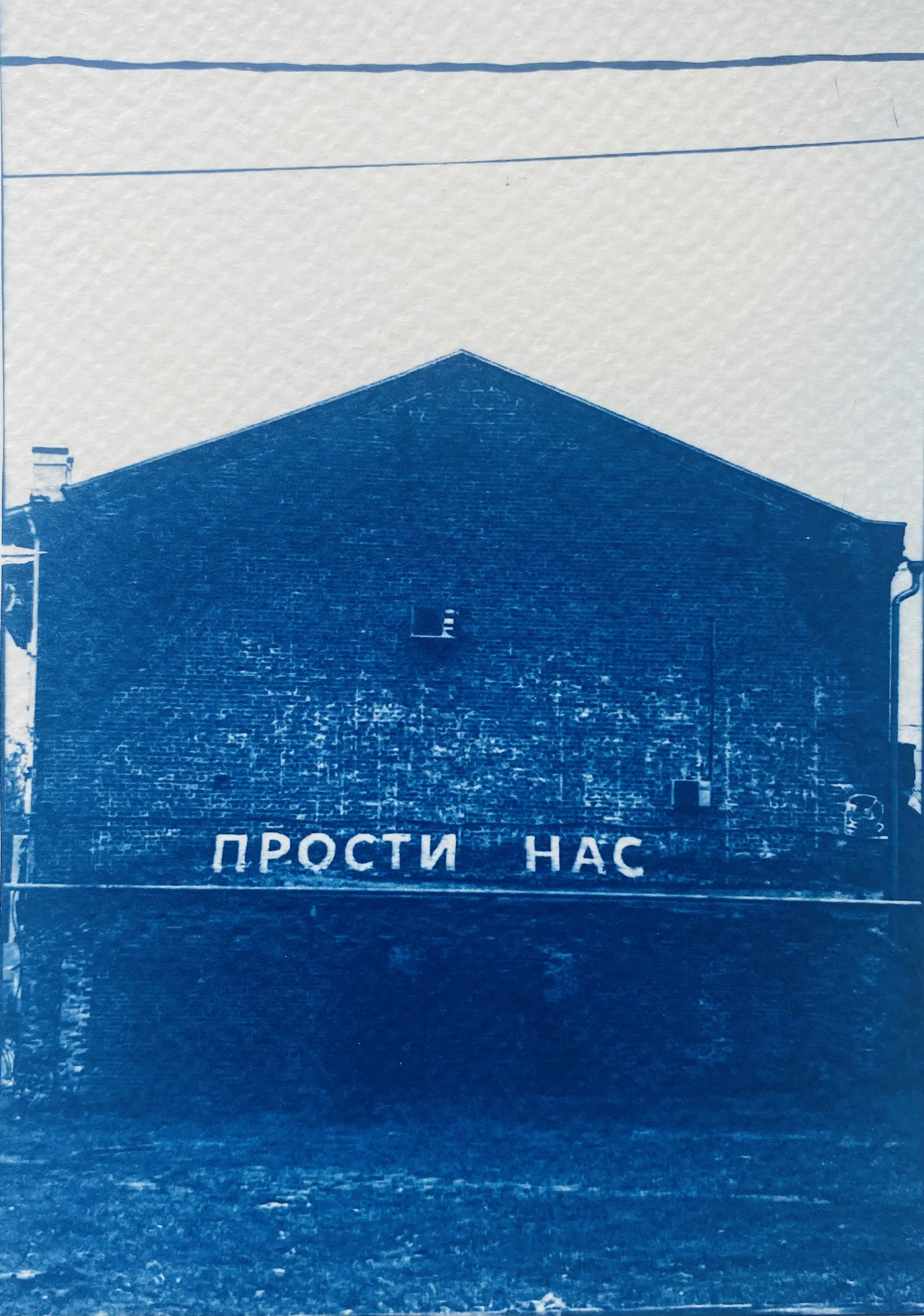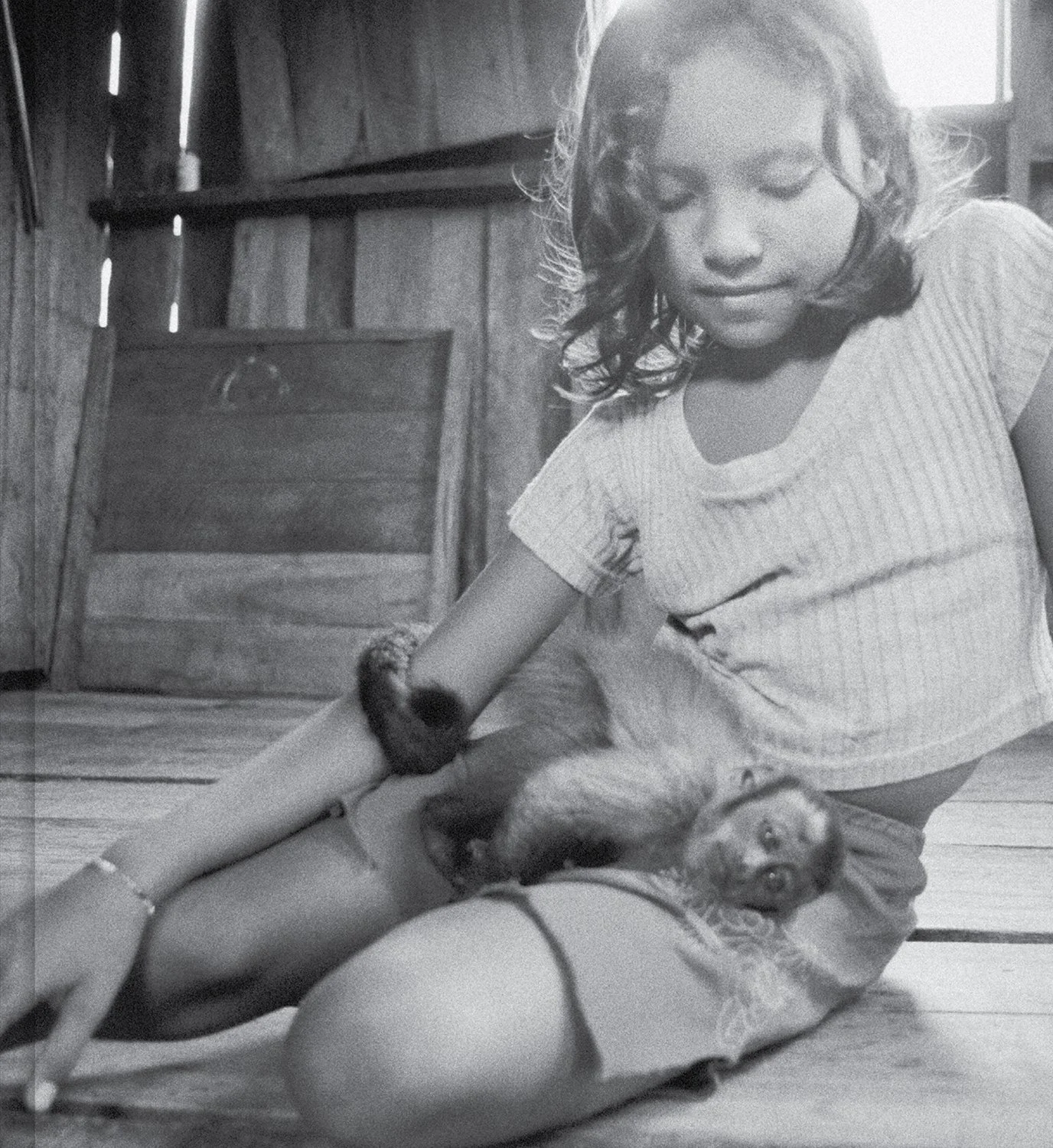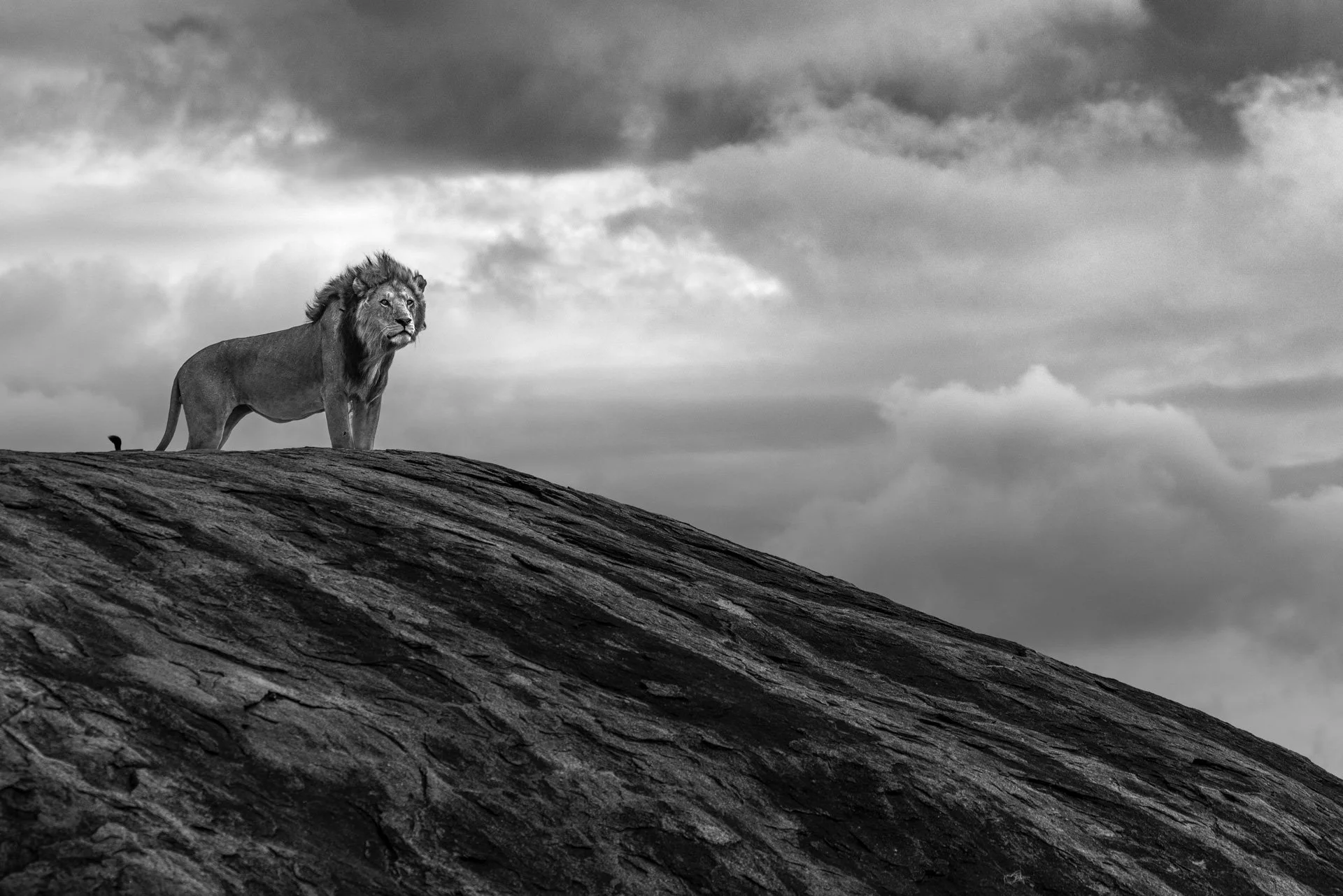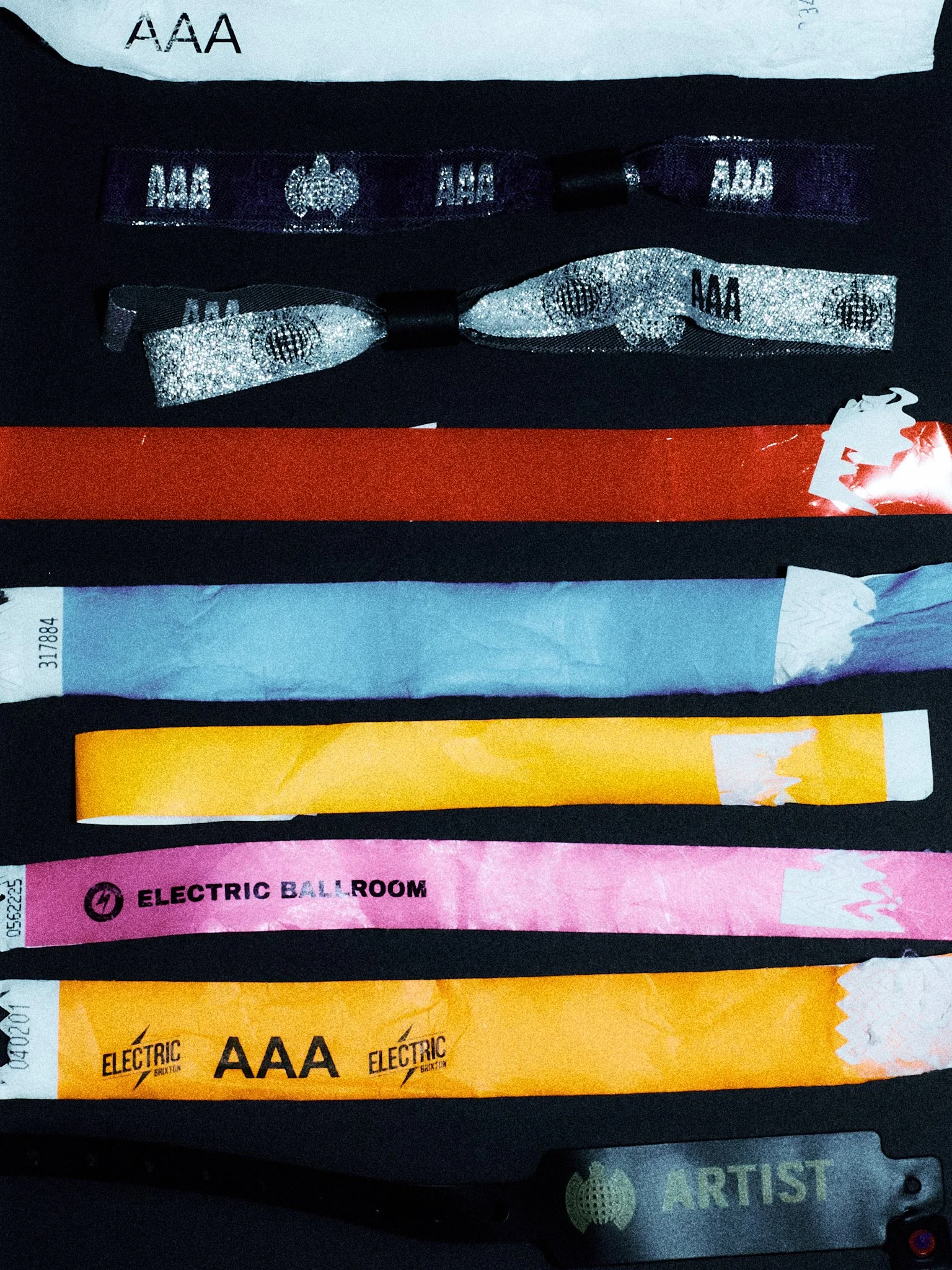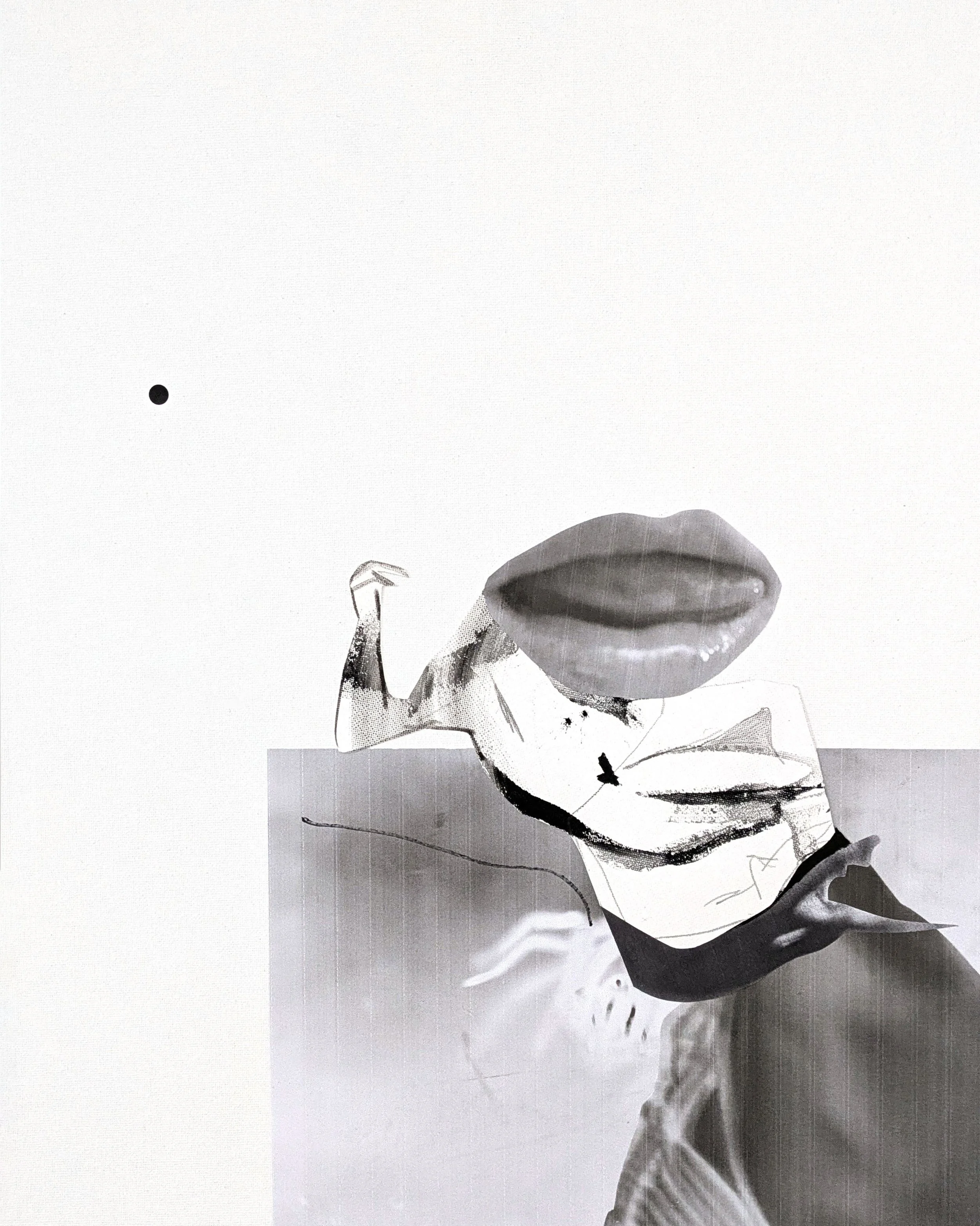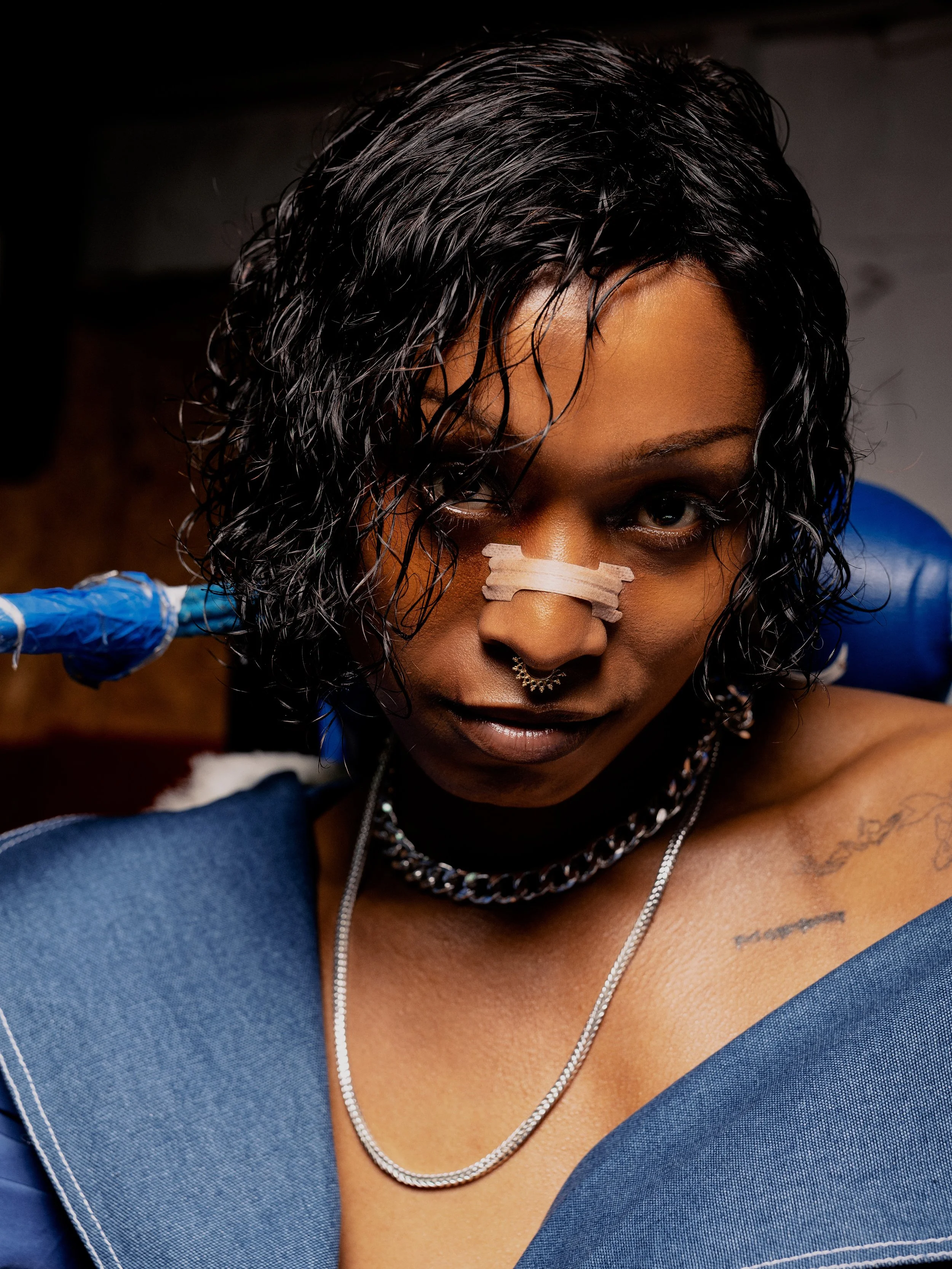Never give up
Vivacious new acting talent Aziz Dyab left his Syrian homeland at just 20 years old, making a perilous journey across Europe to eventually be granted asylum in Germany. Despite having no previous experience and unable to speak the language, within months he began his love affair with acting, within a few years found himself starring in international productions, including the thrilling new Apple TV+ hit Liaison.
Interview Adam Mattera Photography Christian TrippeAziz wears leather suit and shirt by Louis Vuitton, photo: Christian Trippe
Let’s start with Unorthodox. That was your first role in a big international Netflix production. I was amazed to read you’d only been acting for a few years when you were cast in it.
It was all quite quick, yes. I only started acting professionally in 2018, when I got my first part on a feature film. Unorthodox was maybe my third job.
It’s such a compelling drama, and so deserving of all the acclaim and awards it received. Did you have any idea of how successful it would be when you were shooting it?
All I knew for sure was that it was a wonderful story. It's based on an autobiography and the author (Deborah Feldman) was in the writers’ room a lot – it was amazing to listen to her stories. It's basically about a human being trying to find her own identity and break free, and that resonates with a lot of people of different cultural backgrounds. I've heard it was a hit in Saudi Arabia too.
There's a parallel with your own life in a way: in the show, the central character leaves a very restrictive Orthodox Jewish community in New York to go to Germany to find freedom, and you left Syria and ending up finding a new life there too.
When you leave somewhere you’ve lived your whole life, you leave a whole identity behind. You arrive in this new place and have this void for a while, until you figure out who you are, how to adapt to this new environment… and that keeps changing as you kept encountering new people, new situations. So you need to have a really clear sense of self in order not to get lost.
“It's not a family-friendly journey to make across Europe with smugglers – it's an extremely inhuman experience. It's very easy for families to give up – if you have young kids, you just don't dare to put them in a life-threatening situation like that.”
Aziz wears leather suit and shirt by Louis Vuitton, photo: Christian Trippe
Are you okay to talk about what that experience back in 2015 was like for you? I think you were 20 when you left Syria and were granted asylum in Germany – was it your whole family or were you alone?
I was on my own. My family stayed in Syria. It's not a family-friendly journey to make across Europe with smugglers – it's an extremely inhuman experience. It's very easy for families to give up – if you have young kids, you just don't dare to put them in a life threatening situation like that. I'm quite distanced from it now, I barely remember the details. I’d been living my whole life in Syria before that. The war started in 2011 and it kept escalating. And at some point, life in its normality just ceased to exist. You’re in a war zone and all you’re trying to do is survive. I left Syria not just because of the constant danger, but because I wanted to experience life, I wanted to be able to have ambitions of my own, just to go out and meet people and have fun… normal, everyday things people take for granted. Just seeking hope really.
Why did you decide to go to Germany?
So this whole journey is not a decision. People don't sit down and say, ‘Okay, I’ve decided to leave and go to Germany because of this and that’. It doesn't work like that.
It's a build up of a series of events and then you’re suddenly on the way and you literally find yourself in Germany, it just happens so fast. It’s quite surreal. And at that time in 2015, there was a whole wave of refugees passing through Europe. You find yourself on this journey, and you’re not sure where that journey will end.
“The war started in 2011 and it kept escalating. And at some point, life in its normality just ceased to exist. You’re in a war zone and all you’re trying to do is survive.”
Had you always had dreams of being an actor from when you were a kid?
I always loved playing music and watching movies. I used to watch a lot of Al Pacino movies when I was young. I used to imitate him. I loved it! But there’s no supportive atmosphere for art in Syria. Maybe there’s one drama school in the capital, which seemed so far away during the war. So the idea of being an actor or anything like that doesn't even come into it when you're there. Because it’s just about surviving. But when I first came to Germany, I was very quickly exposed to art and theatre. And it totally captured me… I became obsessed with it.
“When I first came to Germany, I was very quickly exposed to art and theatre. And it totally captured me… I became obsessed with it.”
Aziz wears suit by Armani, photo: Christian Trippe
So you arrive in Frankfurt an der Oder on the German-Polish border, after this intense journey, you’re a Syrian refugee and you can’t speak the language… how did you negotiate all that?
Well the first necessity really was to learn German, and fortunately for me I can learn languages very fast. I could already speak English, because of all the music and films I’d watch growing up. I was a big Thirty Seconds To Mars fan, Bon Jovi too. I used to sing along on my guitar. Anyway, within a couple of months I was able to switch between German and English. I used to translate for people that just arrived in the country, help them communicate… there's a lot of people who only speak Arabic. So I just starting meeting people, making connections, and after a few months I found out about this local theatre group.
That’s quite something, to overcome all those obstacles and have the drive to do that. Where do you think that comes from?
Just wanting to be a part of normal life. That's a huge motivation already, because you've missed out on all that stuff. So you start celebrating the little things, like even taking a walk at night was a revelation to me. People forget there’s so many places in the world where it’s not safe enough to even consider that. So life itself motivated me.
“As soon as we started rehearsing, I would just lose myself a scene. For a moment, you become someone else. It’s an amazing feeling.”
So how was the experience of being on stage for the first time?
Well this director had approached me because he wanted to do a play about displacement, about refugees and stuff like that. First of all I wasn’t sure I wanted to do it because it seemed so foreign to me, I’d never even been inside a theatre before. But as soon as we started rehearsing, I found I would just lose myself a scene. For a moment, you become someone else. It’s an amazing feeling.
Things moved pretty quickly for you. Within a few years you progressed from theatre to your first feature film to TV roles – you must have been incredibly focused.
At some point, I just realised this is something I want to dedicate myself to. So I started to invest all of my time in it. I did anything that gave me a chance to act, student films, parts in plays, whatever, and eventually I got an agent in Berlin and started doing loads of auditions for feature films, all kinds of things.
And what about your family back in Syria – were they surprised when you told them about this whole acting thing?
At the beginning? Absolutely. Because again, it's not something that anyone there would even dream of. But my parents are very supportive. I showed them Unorthodox, they liked that, but I don't send them everything because most of my shows are kind of scary. My mom is very sensitive. She doesn't like to see that stuff. She watched Je Suis Karl (one of his first films) and there’s a scene where I’m trapped in a car during a riot and my sister told me ’mom was crying so much, she was really frightened for you.’
Well you better not send her Liaison then – in almost every scene your on the run or about to get shot or blown up!
No, no, she'll be terrified!
Aziz wears jacket by Vollebak, Photo: Christian Trippe
So let’s talk about Liaison then – it’s a real edge of seat, international espionage type thriller affair. How did you get the role?
When I first read the part I knew could do it. He's a Syrian computer hacker, who’s being sought after by all these different agencies, good and bad. I know my way around computers, so I felt really confident with the audition. I had this gut feeling I was gonna get it.
It’s a very international show – there’s scenes in Damascus, Brussels, Paris, London. It’s the kind of thing you used to only see in Bond movies back in the day, now it seems a lot of TV now is leaning towards these kind of multi-national, multi-lingual productions.
Isn't that the thing now with real life though? I mean, the world is such a small place nowadays, wherever you go you find people speaking multiple languages, especially in Europe. Everyone is connected, no place seems so far away anymore. So it makes sense, because TV is a projection of reality.
“There’s just so much I want to do. I’d actually love to play Willy Wonka! I mean it! I just want to keep stretching myself.”
So what’s next for you? You mentioned your love of music, so maybe a musical even?
I'd love that. I was watching this film recently – Tick, Tick… Boom! with Andrew Garfield – and my actor heart started pounding. I’d really love to do something like that. And I’m working on this new romantic comedy series for German TV, but it’s very early stages at the moment, so I can’t say much about it. There’s just so much I want to do. I’d actually love to play Willy Wonka! I mean it! I just want to keep stretching myself, trying to improve my English, trying new roles. I’m just really excited about the future at the moment. It feels like anything is possible now, and I love that.
Aziz wears leather suit and shirt by Louis Vuitton, photo: Christian Trippe
Aziz in conversation with Adam at our studio in East London
Liaison is available on Apple TV+.
You can watch the trailer here
Team credits
Interview Adam Mattera
Photography Christian Trippe
Grooming Viorela Coman
Big thanks to Epilogue
